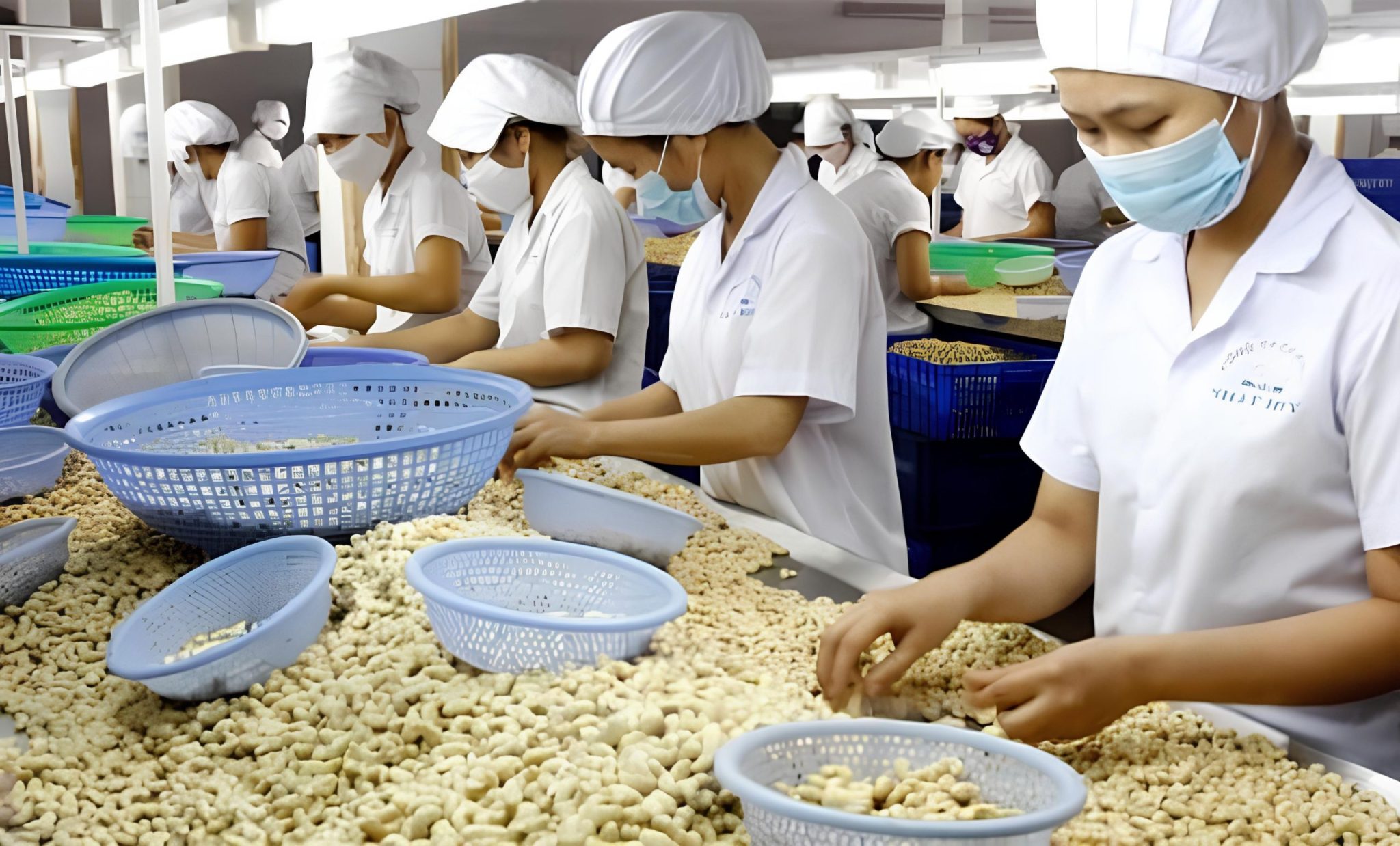When it comes to cashew nuts, the quality of the kernels can make a significant difference in taste and overall satisfaction. Processed cashew kernels are a popular choice for those who want a convenient and ready-to-eat snack or a versatile ingredient for various recipes. However, not all processed cashew kernels are created equal. To ensure you select the best quality cashew kernels, it is essential to consider several factors. In this ultimate guide, I will walk you through the process of choosing premium processed cashew kernels, from understanding the different grades to evaluating appearance, taste, and processing methods. By the end of this guide, you will be equipped with the knowledge needed to find the finest quality cashew kernels for your needs.
Why quality matters when selecting cashew kernels
When it comes to cashew kernels, quality matters. Premium cashew kernels not only offer a superior taste but also provide more nutritional value. High-quality cashews are carefully processed to retain their natural flavors and nutrients, making them a healthier option compared to lower-grade kernels. Additionally, premium cashew kernels are often free from additives and preservatives, ensuring a pure and natural snacking experience. Whether you are enjoying cashews as a standalone snack or using them in your favorite recipes, selecting high-quality kernels will enhance the overall taste and satisfaction of your culinary endeavors.
Factors to Consider When Choosing Premium Processed Cashew Kernels
Step 1: Understanding the Different Grades of Cashew Kernels
Cashew kernels are graded based on their size, color, and overall quality. Understanding the different grades will help you make an informed decision when selecting cashew kernels. The most common grades of cashew kernels include W180, W210, W240, W320, and W450, with the number indicating the number of kernels per pound. For example, W180 cashew kernels are the largest and most expensive, while W450 cashew kernels are smaller and more affordable. Consider your budget and intended use when selecting the grade of cashew kernels.
Step 2: Assessing the appearance and color of cashew kernels
The appearance and color of cashew kernels can provide valuable insights into their quality. Look for cashew kernels that have a light ivory or pale yellow color. Avoid kernels that appear overly dark or have any discoloration, as this may indicate a lower quality or improper storage conditions. Premium cashew kernels should have a consistent color throughout, indicating that they have been processed and stored correctly.
Step 3: Evaluating the size and uniformity of cashew kernels
Size and uniformity are essential factors to consider when selecting cashew kernels. Premium cashew kernels should be uniform in size, with minimal variations. Larger cashew kernels tend to have a more satisfying crunch and are often favored by consumers. However, keep in mind that the size of cashew kernels may affect their price, so consider your preferences and budget when making your selection.
Step 4: Checking for the presence of broken or damaged cashew kernels
Inspect the cashew kernels for any signs of breakage or damage. High-quality cashew kernels should be intact, without any cracks, splits, or fragments. Broken or damaged kernels may indicate mishandling during processing or storage, which can affect the overall taste and texture. Opt for cashew kernels that are free from any visible damage to ensure a premium snacking or cooking experience.
Step 5: Analyzing the moisture content of cashew kernels
The moisture content of cashew kernels can significantly impact their quality and shelf life. Premium cashew kernels should have a moisture content of around 5%. Excessive moisture can lead to spoilage and the growth of mold, while low moisture content can result in dry and tasteless kernels. To assess the moisture content, you can perform a simple squeeze test. If the cashew kernels feel too soft or damp, they may have a higher moisture content than desired.
Step 6: Assessing the taste and texture of cashew kernels
The taste and texture of cashew kernels are paramount when selecting premium quality. Opt for cashew kernels that have a rich, buttery flavor and a satisfying crunch. Avoid kernels that taste rancid, dull, or have an off-putting aftertaste. The texture should be firm and crisp, indicating that the cashew kernels are fresh and properly processed. Take the time to sample cashew kernels from different suppliers to find the taste and texture that best suits your preferences.
Step 7: Verifying the processing methods used for cashew kernels
The processing methods used for cashew kernels can greatly impact their quality and safety. Look for suppliers that follow industry standards and employ hygienic processing practices. Cashew kernels should be processed under controlled conditions to minimize the risk of contamination and preserve their natural flavors and nutrients. Consider suppliers who provide information on their processing methods, ensuring transparency and trust in the quality of their cashew kernels.
Step 8: Considering the packaging and storage conditions of cashew kernels
Proper packaging and storage conditions are crucial for maintaining the quality and shelf life of cashew kernels. Premium cashew kernels should be packaged in airtight containers or bags to protect them from moisture, light, and oxygen. Check for packaging that clearly states the packaging date and best before date. Additionally, consider suppliers who store their cashew kernels in a cool, dry environment, as this helps to preserve their freshness and flavors.
Step 9: Understanding the pricing factors for premium processed cashew kernels
Price can be a determining factor when selecting premium processed cashew kernels. The price of cashew kernels is influenced by various factors, including the grade, size, and availability. Higher-grade cashew kernels tend to be more expensive, while smaller grades are more affordable. Consider your budget and intended use when evaluating the pricing of cashew kernels. Keep in mind that paying a higher price for premium quality cashew kernels is often worth the investment, as they provide a superior taste and overall experience.
Step 10: Reviewing customer feedback and ratings for cashew suppliers
To ensure you are selecting the best cashew kernels, it is beneficial to review customer feedback and ratings for different suppliers. Online platforms and forums provide valuable insights into the experiences of other customers. Look for suppliers with positive reviews regarding the quality, taste, and overall satisfaction of their cashew kernels. Consider the reputation and reliability of the suppliers before making your final decision.
Selecting premium processed cashew kernels requires careful consideration of various factors. By understanding the grades, appearance, size, moisture content, taste, processing methods, packaging, pricing, and customer feedback, you can confidently choose the finest quality cashew kernels for your needs. Whether you are a consumer looking for a delectable snack or a business seeking top-notch ingredients for your products, investing in premium processed cashew kernels will elevate your culinary experience and set you apart from the rest. So, take the time to choose wisely and savor the excellence that premium cashew kernels bring to your table.
To find out more about how we can fulfil your requirements, please follow our social media channels, subscribe to our mailing list, or reach out directly to us via our contact us page. We will be happy to help!



